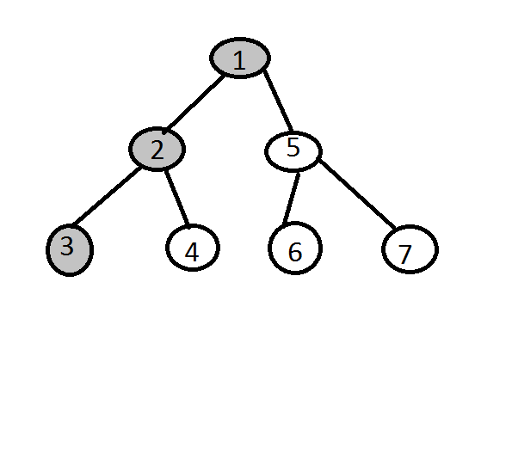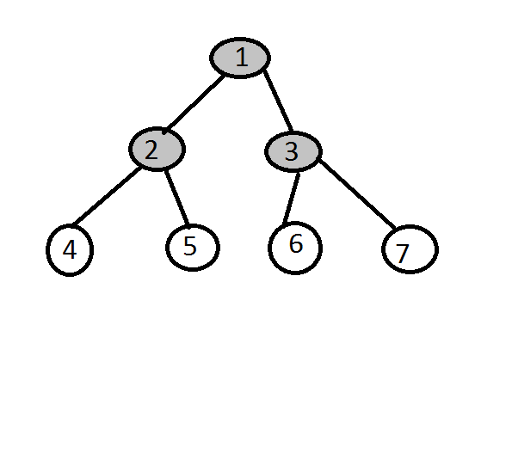Hi all. I have the following code
void f(int x)
{
if(x<0||x>10000) return ;
f(x-1);
f(2*x);
}
When this code is executed it will start from left (x-1) untill he reach the last element and then go to the right and so on

How ever i want it to proceed from up to down like in the picture

Any helps. regards.











you can use BFS instead of DFS. It means you can have a queue that put sub-states of current state in it, and every time you have done with current state, you should pick a new state from the queue. (for more details, google it :) )
thanks for your reply , BFS is great solution to this problem but i still want to know if there is a way to do it with DFS :)
also you can use depth controlled DFS, I mean you can use a factor depth in your function and prevent to go beyond this limit, so you can check all the possible states at desired level D from the root. By increasing this limit (D), you can search whole the graph using DFS but similar to BFS.
i start to understand a bit , you mean add a parametre to the function that prevent it to go in one direction . Right ?? Can you provide a code ??
not exactly one direction, just one level!
so you can call DFS by increasing the value of depth. It gives you the advantage of BFS.